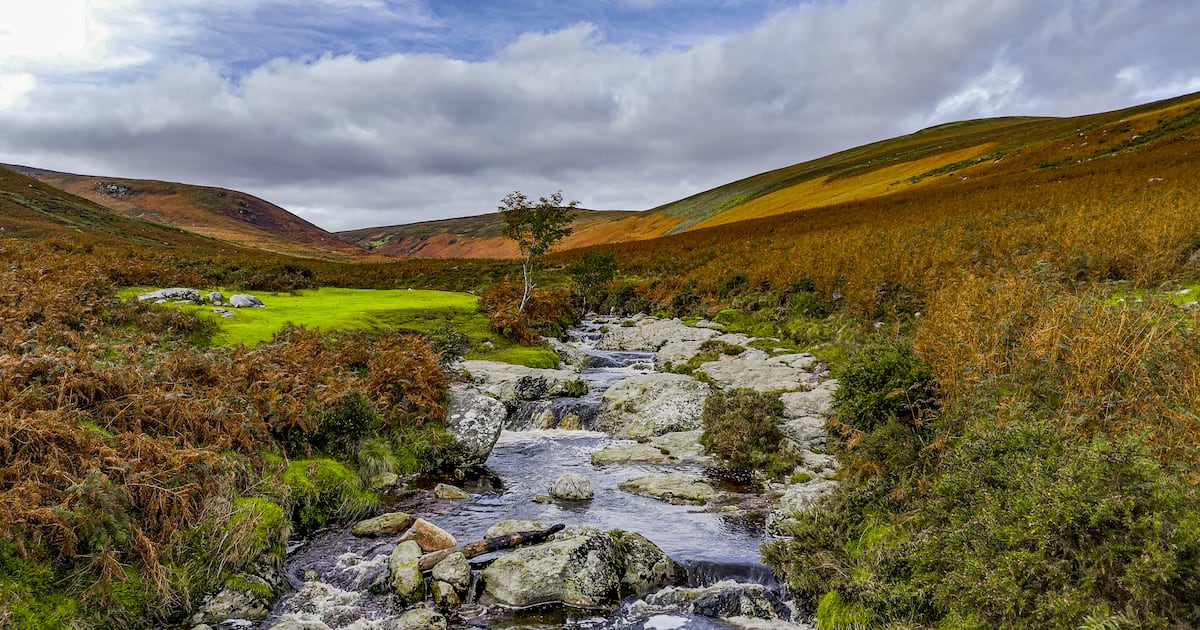Top Stories
EU Report Declares Ireland’s Environment in ‘Very Poor’ State

UPDATE: A new report from the European Environment Agency (EEA) confirms that Ireland’s natural environment is in a “very poor” condition, raising urgent concerns about the sustainability of the country’s economic growth. The State of Europe’s Environment report, released on October 15, 2023, highlights critical issues including deteriorating water quality, excessive waste, and a heavy reliance on fossil fuels.
The findings are alarming: 85 percent of Ireland’s protected habitats and nearly one-third of its protected species face unfavorable conditions. The report emphasizes that over half of native plant species are declining, while more than 50 bird species are under high conservation concern. “Significant measures are needed to address declines,” the report stresses.
Water quality remains a major concern, with assessments showing no improvement in rivers or lakes over the past five years. Key pressures cited include agriculture, urban sewage discharges, and artificial interference with water flows. The EEA notes that compliance with EU obligations is a persistent challenge for the Irish Government.
The report also criticizes Ireland’s failure to transition to a circular economy, which would promote sharing, repairing, and recycling goods and services. Instead, the economy remains linear, characterized by material overconsumption and increasing waste. Ireland’s expenditure on environmental protection is troublingly low, with just 0.9 percent of GDP allocated compared to the EU average of 2.2 percent.
The EEA calls for urgent investment in water, energy, transport, and waste management infrastructure to meet the demands of Ireland’s growing population and economy. “Scaled-up investment is essential to address significant environmental challenges,” the report states.
Agricultural practices are also under scrutiny, with the EEA noting that Ireland’s food systems require urgent transformational change. Despite numerous plans and positive actions at the farm level, there is no clear evidence that current measures will yield the necessary environmental improvements. The intensification of livestock farming, aimed at meeting ambitious growth policies, has only exacerbated environmental degradation.
While the report acknowledges progress in renewable energy and public transport, it warns that Ireland must accelerate its efforts to make energy, transport, food, and industrial systems more sustainable.
The findings are part of a broader trend across Europe, where over 60 percent of species and nearly 80 percent of habitats are reported to be in poor or bad condition. The EEA concludes that the overall state of Europe’s environment poses significant risks to economic prosperity, security, and quality of life.
As the Irish Government plans to publish a Water Action Plan next year and a Nature Restoration Plan, the urgency for immediate action has never been clearer. The EEA’s report serves as a stark reminder that time is of the essence in addressing these critical environmental issues.
Stay tuned for updates as Ireland grapples with these pressing challenges.
-

 Top Stories4 weeks ago
Top Stories4 weeks agoTributes Surge for 9-Year-Old Leon Briody After Cancer Battle
-

 Entertainment2 months ago
Entertainment2 months agoAimee Osbourne Joins Family for Emotional Tribute to Ozzy
-

 Politics3 months ago
Politics3 months agoDanny Healy-Rae Considers Complaint After Altercation with Garda
-

 Top Stories2 months ago
Top Stories2 months agoIreland Enjoys Summer Heat as Hurricane Erin Approaches Atlantic
-

 World3 months ago
World3 months agoHawaii Commemorates 80 Years Since Hiroshima Bombing with Ceremony
-

 Top Stories3 months ago
Top Stories3 months agoFianna Fáil TDs Urgently Consider Maire Geoghegan-Quinn for Presidency
-

 World3 months ago
World3 months agoGaza Aid Distribution Tragedy: 20 Killed Amid Ongoing Violence
-

 World3 months ago
World3 months agoCouple Convicted of Murdering Two-Year-Old Grandson in Wales
-

 Top Stories4 weeks ago
Top Stories4 weeks agoNewcastle West Woman Patricia Foley Found Safe After Urgent Search
-

 Top Stories2 months ago
Top Stories2 months agoClimbing Errigal: A Must-Do Summer Adventure in Donegal
-

 Top Stories2 months ago
Top Stories2 months agoHike Donegal’s Errigal Mountain NOW for Unforgettable Summer Views
-

 World3 months ago
World3 months agoAristocrat Constance Marten and Partner Convicted of Infant Murder








